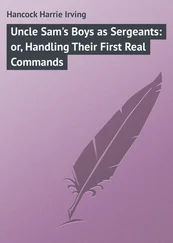Elbridge Brooks - Historic Boys - Their Endeavours, Their Achievements, and Their Times
Здесь есть возможность читать онлайн «Elbridge Brooks - Historic Boys - Their Endeavours, Their Achievements, and Their Times» — ознакомительный отрывок электронной книги совершенно бесплатно, а после прочтения отрывка купить полную версию. В некоторых случаях можно слушать аудио, скачать через торрент в формате fb2 и присутствует краткое содержание. ISBN: , Жанр: foreign_antique, foreign_prose, Биографии и Мемуары, на английском языке. Описание произведения, (предисловие) а так же отзывы посетителей доступны на портале библиотеки ЛибКат.
- Название:Historic Boys: Their Endeavours, Their Achievements, and Their Times
- Автор:
- Жанр:
- Год:неизвестен
- ISBN:http://www.gutenberg.org/ebooks/27157
- Рейтинг книги:3 / 5. Голосов: 1
-
Избранное:Добавить в избранное
- Отзывы:
-
Ваша оценка:
- 60
- 1
- 2
- 3
- 4
- 5
Historic Boys: Their Endeavours, Their Achievements, and Their Times: краткое содержание, описание и аннотация
Предлагаем к чтению аннотацию, описание, краткое содержание или предисловие (зависит от того, что написал сам автор книги «Historic Boys: Their Endeavours, Their Achievements, and Their Times»). Если вы не нашли необходимую информацию о книге — напишите в комментариях, мы постараемся отыскать её.
Historic Boys: Their Endeavours, Their Achievements, and Their Times — читать онлайн ознакомительный отрывок
Ниже представлен текст книги, разбитый по страницам. Система сохранения места последней прочитанной страницы, позволяет с удобством читать онлайн бесплатно книгу «Historic Boys: Their Endeavours, Their Achievements, and Their Times», без необходимости каждый раз заново искать на чём Вы остановились. Поставьте закладку, и сможете в любой момент перейти на страницу, на которой закончили чтение.
Интервал:
Закладка:
"Hail to the serpent banner! Hail to Olaf the Brave!" said King Ethelred, as the war-horns sounded a welcome; and on the low shores of the Isle of Dogs, just below the old city, the keels of the Norse war-ships grounded swiftly, and the boy viking and his followers leaped ashore. "Thou dost come in right good time with thy trusty dragon-ships, young King," said King Ethelred; "for the Danish robbers are full well entrenched in London town and in my father Edgar's castle."
And then he told Olaf how, "in the great trading place which is called Southwark," the Danes had raised "a great work and dug large ditches, and within had builded a bulwark of stone, timber and turf, where they had stationed a large army."
"And we would fain have taken this bulwark," added the King, "and did in sooth bear down upon it with a great assault; but indeed we could make naught of it."
"And why so?" asked the young viking.
"Because," said King Ethelred, "upon the bridge betwixt the castle and Southwark have the ravaging Danes raised towers and parapets, breast high, and thence they did cast down stones and weapons upon us so that we could not prevail. And now, Sea-King, what dost thou counsel? How may we avenge ourselves of our enemies and win the town?"
Impetuous as ever, and impatient of obstacles, the young viking said: "How? why, pull thou down this bridge, King, and then may ye have free river-way to thy castle."
"Break down great London Bridge, young hero?" cried the amazed king. "How may that be? Have we a Duke Samson among us to do so great a feat?"
"Lay me thy ships alongside mine, King, close to this barricaded bridge," said the valorous boy, "and I will vow to break it down, or ye may call me caitiff and coward."
"Be it so," said Ethelred, the English king; and all the war-chiefs echoed: "Be it so!" So Olaf and his trusty Rane made ready the war-forces for the destruction of the bridge.
Old London Bridge was not what we should now call an imposing structure, but our ancestors of nine centuries back esteemed it quite a bridge. The chronicler says that it was "so broad that two wagons could pass each other upon it," and "under the bridge were piles driven into the bottom of the river."
So young Olaf and old Rane put their heads together, and decided to wreck the bridge by a bold viking stroke. And this is how it is told in the "Heimskringla," or Saga of King Olaf the Saint:
"King Olaf ordered great platforms of floating wood to be tied together with hazal bands, and for this he took down old houses; and with these, as a roof, he covered over his ships so widely that it reached over the ships' sides. Under this screen he set pillars, so high and stout that there both was room for swinging their swords, and the roofs were strong enough to withstand the stones cast down upon them."
"Now, out oars and pull for the bridge," young Olaf commanded; and the roofed-over war-ships were rowed close up to London Bridge.
And as they came near the bridge, the chronicle says:
"There were cast upon them, by the Danes upon the bridge, so many stones and missile weapons, such as arrows and spears, that neither helmet nor shield could hold out against it; and the ships themselves were so greatly damaged that many retreated out of it."
But the boy viking and his Norsemen were there for a purpose, and were not to be driven back by stones or spears or arrows. Straight ahead they rowed, "quite up under the bridge."
"Out cables, all, and lay them around the piles," the young sea-king shouted; and the half-naked rowers, unshipping their oars, reached out under the roofs and passed the stout cables twice around the wooden supports of the bridge. The loose end was made fast at the stern of each vessel, and then, turning and heading down stream, King Olaf's twenty stout war-ships waited his word:
"Out oars!" he cried; "pull, war-birds! Pull all, as if ye were for Norway!"
Forward and backward swayed the stout Norse rowers; tighter and tighter pulled the cables; fast down upon the straining war-ships rained the Danish spears and stones; but the wooden piles under the great bridge were loosened by the steady tug of the cables, and soon with a sudden spurt the Norse war-ships darted down the river, while the slackened cables towed astern the captured piles of London Bridge. A great shout went up from the besiegers, and "now," says the chronicle, "as the armed troops stood thick upon the bridge, and there were likewise many heaps of stones and other weapons upon it, the bridge gave way; and a great part of the men upon it fell into the river, and all the others fled – some into the castle, some into Southwark." And before King Ethelred, "The Unready," could pull his ships to the attack, young Olaf's fighting-men had sprung ashore, and, storming the Southwark earthworks, carried all before them, and the battle of London Bridge was won.
And the young Olaf's saga-man sang triumphantly:
"London Bridge is broken down —
Gold is won and bright renown;
Shields resounding,
War-horns sounding,
Hildar shouting in the din!
Arrows singing,
Mail-coats ringing,
Odin makes our Olaf win!"
And perhaps, who knows, this wrecking of London Bridge so many hundred years ago by Olaf, the boy viking of fifteen, may have been the origin of the old song-game dear to so many generations of children:
"London Bridge is fallen down, fallen down, fallen down —
London Bridge is fallen down, my fair lady!"
So King Ethelred won back his kingdom, and the boy viking was honored above all others. To him was given the chief command in perilous expeditions against the Danes, and the whole defence of all the coast of England. North and south along the coast he sailed with all his war-ships, and the Danes and Englishmen long remembered the dashing but dubious ways of this young sea-rover, who swept the English coast and claimed his dues from friend and foe alike. For those were days of insecurity for merchant and trader and farmer, and no man's wealth or life was safe except as he paid ready tribute to the fierce Norse allies of King Ethelred. But soon after this, King Ethelred died, and young Olaf, thirsting for new adventures, sailed away to the south and fought his way all along the French coast as far as the mouth of the river Garonne. Many castles he captured; many rival vikings subdued; much spoil he gathered; until at last his dragon-ships lay moored under the walls of old Bordeaux, waiting for fair winds to take him around to the Straits of Gibraltar, and so on "to the land of Jerusalem."
One day, in the booty-filled "fore-hold" of his dragon-ship, the young sea-king lay asleep; and suddenly, says the old record, "he dreamt a wondrous dream."
"Olaf, great stem of kings, attend!" he heard a deep voice call; and, looking up, the dreamer seemed to see before him "a great and important man, but of a terrible appearance withal."
"If that thou art Olaf the Brave, as men do call thee," said the vision, "turn thyself to nobler deeds than vikings' ravaging and this wandering cruise. Turn back, turn back from thy purposeless journey to the land of Jerusalem, where neither honor nor fame awaits thee. Son of King Harald, return thee to thy heritage; for thou shalt be King over all Norway."
Then the vision vanished and the young rover awoke to find himself alone, save for the sleeping foot-boy across the cabin door-way. So he quickly summoned old Rane, the helmsman, and told his dream.
"'T was for thy awakening, King," said his stout old follower. "'T was the great Olaf, thine uncle, Olaf Tryggvesson the King, that didst call thee. Win Norway, King, for the portent is that thou and thine shall rule thy fatherland."
And the war-ships' prows were all turned northward again, as the boy viking, following the promise of his dream, steered homeward for Norway and a throne.
Читать дальшеИнтервал:
Закладка:
Похожие книги на «Historic Boys: Their Endeavours, Their Achievements, and Their Times»
Представляем Вашему вниманию похожие книги на «Historic Boys: Their Endeavours, Their Achievements, and Their Times» списком для выбора. Мы отобрали схожую по названию и смыслу литературу в надежде предоставить читателям больше вариантов отыскать новые, интересные, ещё непрочитанные произведения.
Обсуждение, отзывы о книге «Historic Boys: Their Endeavours, Their Achievements, and Their Times» и просто собственные мнения читателей. Оставьте ваши комментарии, напишите, что Вы думаете о произведении, его смысле или главных героях. Укажите что конкретно понравилось, а что нет, и почему Вы так считаете.












